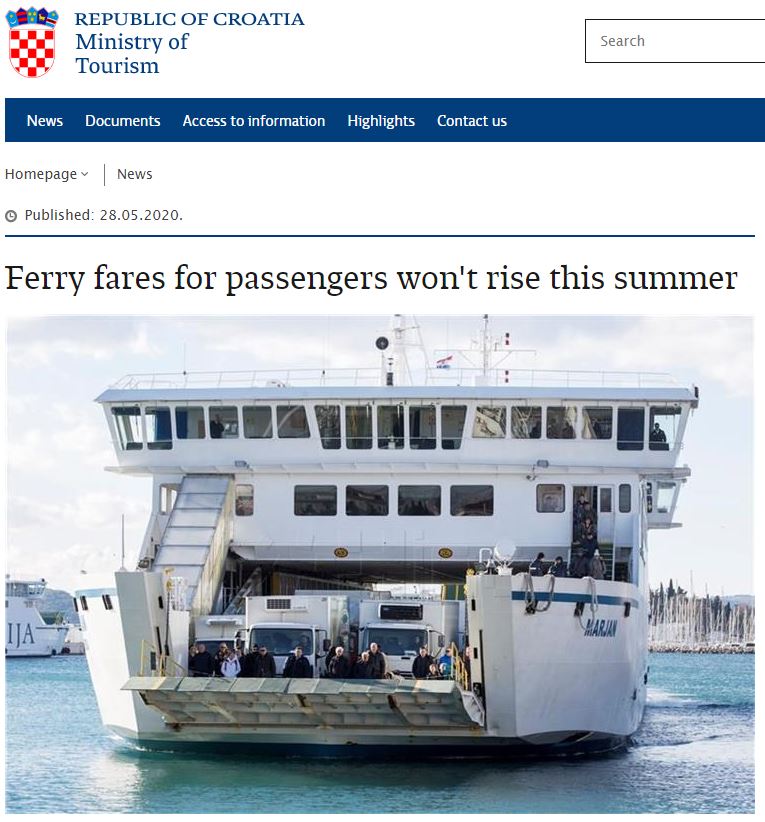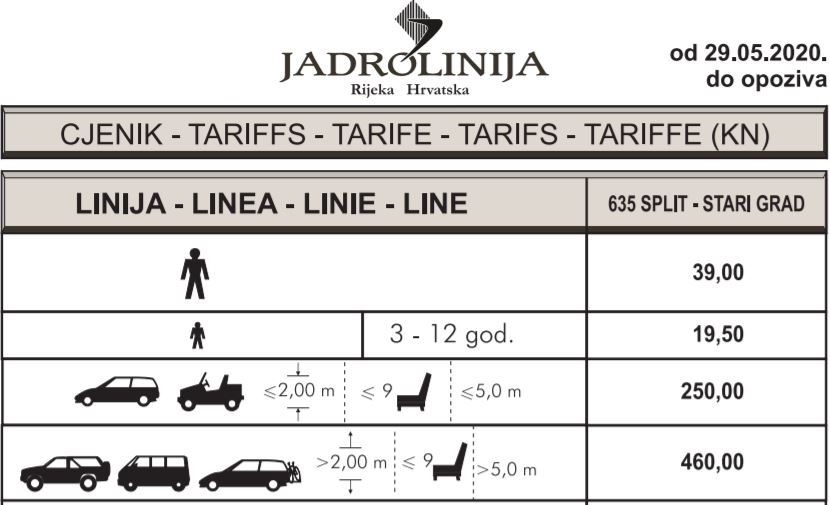July 2, 2020 - As locals complain of Hvar Town hosting just 66 guests, why Croatian tourism strategy makes that inevitable.
There was an interesting report in Slobodna Dalmacija the other day on the quietness of the season in Hvar Town - just 66 registered guests.
Corona is the main reason, of course, but it is worth taking a closer look at what is happening, and how the complete lack of any tourism strategy is making a terrible situation so much worse.
Slobodna says that at the same time last year, there were 4,588 guests, a sizable difference. Now let's do some maths.
I was speaking to someone in the Hvar hotel business the other day, and he told me that the main problem at the moment is that 75% of the normal guests - from USA, UK, Scandinavia, Australia, Brazil etc - simply cannot get here due to issues with borders or flights.
25% of 4,588 is 1,147.
So if this was a record year like last year, then the remaining 25% of tourists would number 1,147.
This is not a record year.
Our tourism chiefs tell us that last month was 30% of the same time in 2019. So 30% of 4,588 would be 1,376 tourists.
The thing is that Istria is MUCH fuller than Dalmatia, as it is much closer, and LOTS of Slovenians have holiday homes a short drive from their home countries. And yes, they are in the tourism stats too, and no, they don't need 319 local tourist boards, 20 regional tourist boards, a national tourist board, a ministry of tourism, or a tourism section of the Chamber of Economy to tell them where there house is.
There are 110,000 Slovenians alone who have holiday homes in Croatia. You can bet almost all of them came to chill after lockdown. If they averaged three per household, there are 300,000 of the 892,000 tourists which came to Croatia in June, according to our official statistics. And those are just the Slovenian home owners.
The increased distance to Dalmatia (and lack of flights) means that it is probably more like 10% capacity of last year, which would be 459 tourists, which is more than the current 66.
So let's have a look at the current Croatian tourism strategy and what it is doing to fight for every guest in the corona age where Minister Cappelli tells the world Croatia is 'breathing tourism.'
As there are almost no flights, the only options are to arriving by car and ferry, or by sea. Split is a long drive from any Croatian border, and then you have the 2-hour ferry.
Did we find a way to reduce the tolls on the motorway? No. Just from Zagreb to Split is 400 kuna return.
Did we find a way to subsidise the ferry, a State-owned company fighting for tourism?

(Ministry of Tourism website)
No, but the Ministry of Tourism thought it was cause for celebration that ferry prices were not going up in the middle of a pandemic.
So the return ferry from Split to Stari Grad is 1,192 kuna for a good-sized family car, this after you have been fleeced on the motorway as well as spent a considerable amount on fuel.

Add all the costs of that just to arrive, as well as the distances required by car, when there are so many other closer destinations are offering incredible deals, that in some ways, I am surprised that there are as many as 66 tourists.
If only there was a market which could get there more easily... something like the domestic market, perhaps? For those with money, a unique change to enjoy Lijepa Nasa without the crowds, with a local campaign with special promotional prices. Thought you would never be able to afford a holiday on Hvar? Here is your chance!
Croatia is the only tourism country in Europe that I can see that has not conducted a promotional campaign to the local market.
But then it hasn't really done much abroad either.
Still we have 40,000 of those wonderful CRO kartica cards available, and didn't our dear minister say that they would save tourism?
The Netherlands - as of July 21, Croatia is placed on the "Orange" list by the Dutch government, which means that both the Croatian nationals and the Dutch nationals returning to the Netherlands from Croatia are strongly advised to self-quarantine for 14 days.


